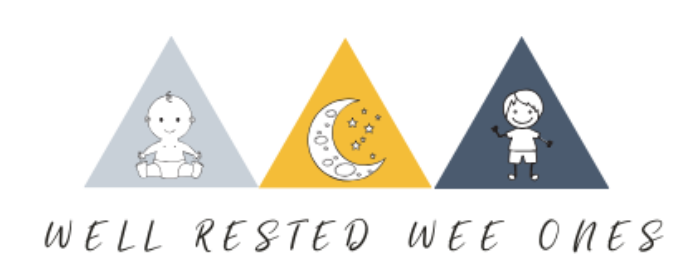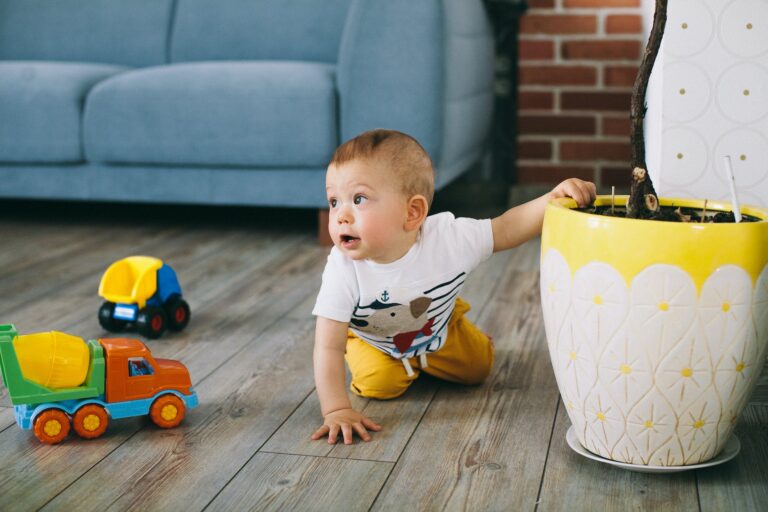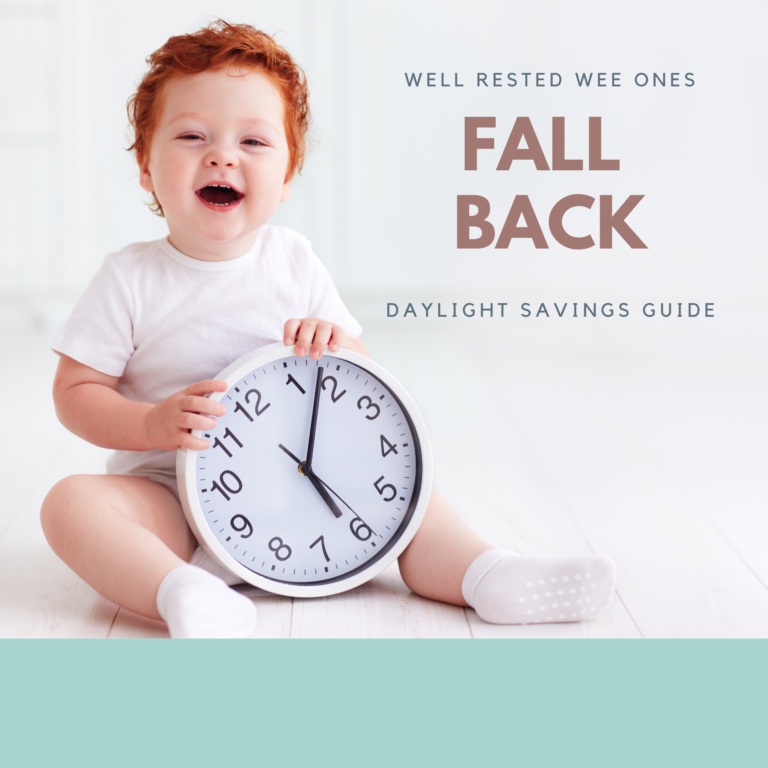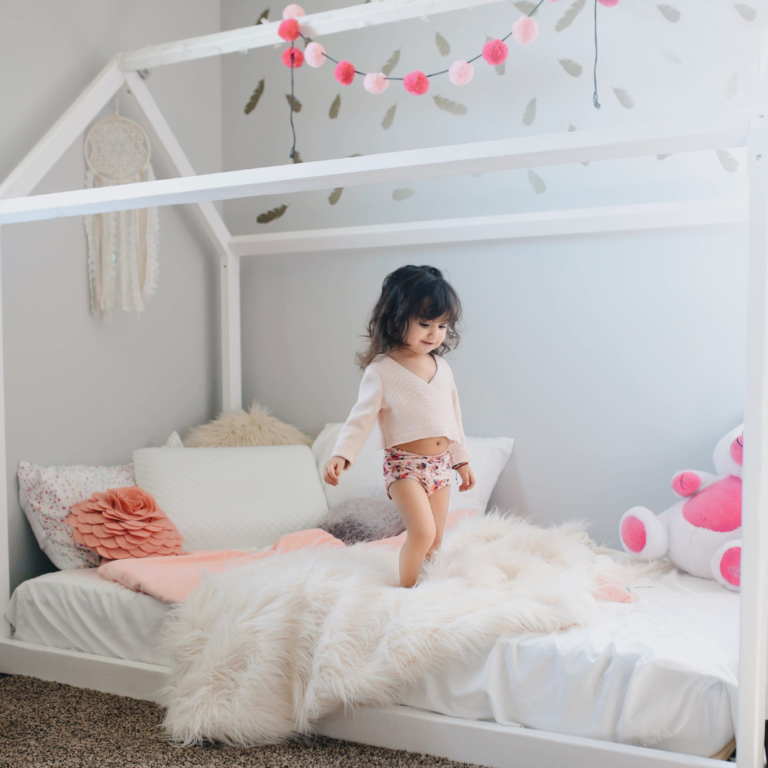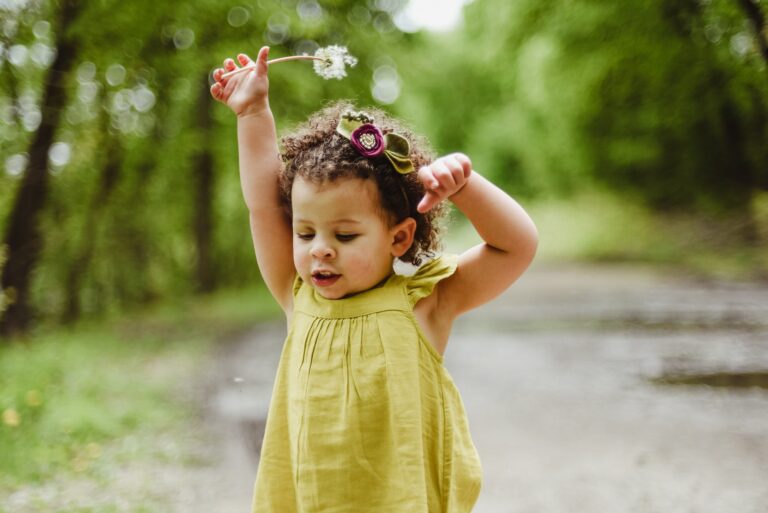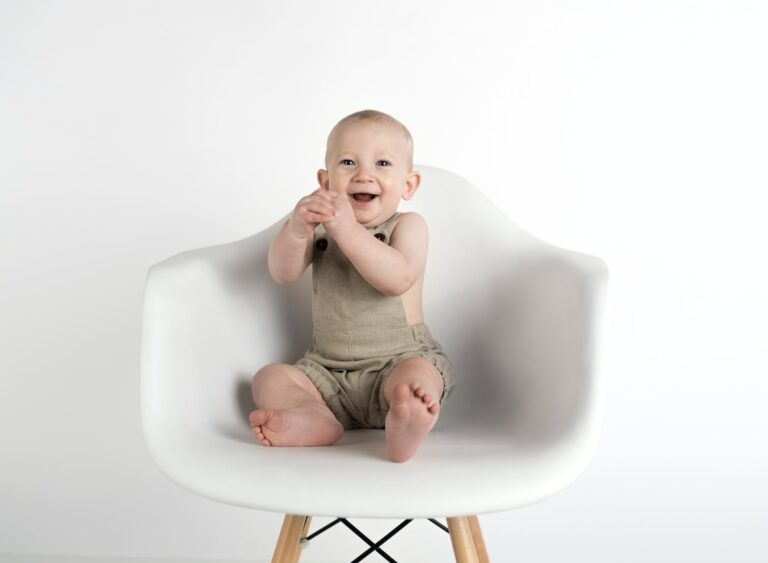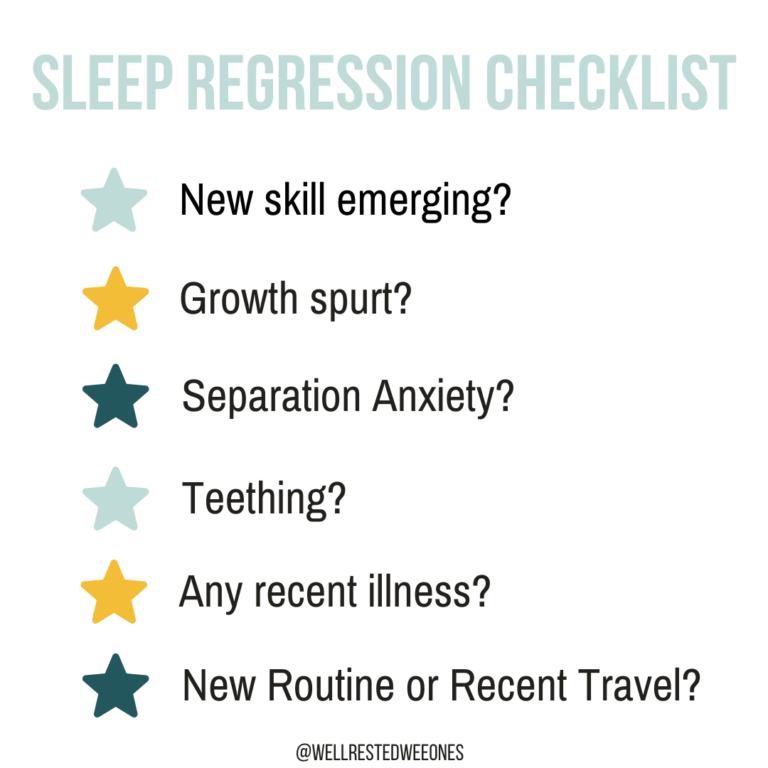Sleep Training and Independent Sleep
What is Sleep Training?
Simply put, sleep training is the process of helping your baby or toddler learn how to fall asleep and stay asleep without your assistance. After a successful sleep training experience, you can feel confident laying your baby down awake in the crib at bedtime or naptime and walk out of the room knowing they will fall asleep on their own.
The word sleep training is one of those “HOT” words and controversial subjects amongst parents. A topic that parents commonly feel strongly FOR or AGAINST.
As a parent of two children that my husband and I personally sleep trained at 3 months AND as a certified pediatric sleep coach and nurse practitioner, I am ALL for it!
I hope this blog gives you some background information and education to help navigate the benefits of sleep and the world of sleep training.
The Benefits of Sleep
The benefit of sleep is substantial, especially in children under age two who spend more time asleep than awake! Sleep is essential to growth and development. A 2007 study revealed that the most fundamental requirements for healthy growth and development in babies and young children include: loving supportive caregivers, adequate nutrition, and SLEEP!
Sleep in Relation to Growth and Development
- Your baby’s brain will double in size in their first year, and most of that growth will happen while they’re asleep.
- Memories are formed and stored during sleep: your baby’s brain stores what they’ve learned that day during sleep which is why it’s so important to incorporate repetitive phrases and practice gross motor skills while awake
- An essential layer of fat called myelin forms around nerve fibers during sleep. Much like the insulation around an electrical wire, myelin allows electrical impulses to move rapidly from one cell to the next. This layer can protect and repair the brain during sleep. (Journal of Neuroscience, September 2013)
- Connections between the left and right hemispheres of the brain are also strengthened in children during sleep. Having both brain hemispheres symmetrical and well connected is the key to maximizing learning, memory, and creativity.
Can You Sleep Train a Newborn?
Prior to 3-4 months, your baby still needs ALOT of assistance from you to fall and stay asleep. Newborns do not have self-soothing skills which is part of why feeding to sleep, rocking to sleep, and using a pacifier work so well in the newborn stage.
In the first 3-4 months of life, your baby has somewhat unorganized sleep patterns allowing them to eat and sleep when and wherever they like! These unorganized sleep patterns are related to a couple of things.
First, newborns do not produce enough melatonin (sleepy hormone), nor do they produce it consistently at night which leads to the classic newborn sleep cycle, in which they sleep for very short times and at odd hours.
Secondly, newborn sleep cycles are shorter and alternate between deep and active sleep allowing them to fall into a deep sleep much faster than older babies and adults.
Newborns are meant to eat and sleep around the clock and not developmentally old enough to sleep train. You can start a routine from day one, but don’t stress too much! The first few weeks are about getting to know your baby as well as rest and recovery from childbirth.
Around 6-8 weeks, your baby will start to recognize patterns and learn your routines. This is a great time to start incorporating a predictable bedtime and naptime routine. Babies thrive on consistency and routine!
Establishing healthy sleep routines at this age can help your baby fall asleep more easily and help when they are old enough for independent sleep which is typically around 4 months of age.
What happens at 3 to 4 months?
As your baby approaches 3-4 months old, the internal body clock called the circadian rhythm starts to develop as melatonin production regulates allowing them to adapt to a 24-hour cycle.
Babies also go through a large developmental leap around this time and become more aware of their surroundings. Sleep patterns and cycles change during this time period to mimic those of adults.
Some babies start to sleep longer stretches prior to 4 months of age only to have a complete flip back to what feels like the newborn stage again with frequent overnight wake-ups every couple of hours. Parents may also find that their baby wakes up as soon as the pacifier falls out or upon being placed in the crib after being nursed to sleep!
Eeek! Why??
You may have heard of something called the “4-month sleep regression.” As your baby’s sleep patterns change and they become more aware of their surroundings, those wonderful sleep practices that you had mastered during the newborn period may not work as well anymore thus causing more sleep disruptions. This is really a “progression” in development even though it seems like your baby is going backward in the sleep department.
This is around the time that parents first seek out sleep training help as they don’t know how to approach these new wake-ups!
Do I feed them even if they had been sleeping 8+ hours the last few weeks? Do I keep replacing the pacifier?
Why do they wake up as soon as I put them in the crib now?
3-6 months is the golden period to sleep train, but it’s never too late!
At what age is a baby developmentally ready for sleep training?
Once your baby is 3-4 months of age, they are capable of learning self-soothing behaviors and are able to sleep independently. Although they are capable of self-soothing, it often requires some form of sleep training to master the skill. That doesn’t mean that every baby or family is ready at this time. The most important thing to consider before sleep training is if the current sleep situation is no longer working well for your family and if you are ready for a change.
Many people don’t see sleep as a skill that needs to be taught but just like tummy time, rolling over, and crawling, you help your baby practice these skills as they learn to master them independently!
Independent sleep takes practice and patience. This is the process of sleep training. Eventually, you will stop feeding, rocking, and giving your child a pacifier to sleep which is all technically a form of sleep training no matter what age it happens!
What About Crying and Stress?
The amount of crying is the top concern when talking to parents about the process of sleep training. “How long?” and “Is the crying going to cause too much stress for the baby?”
Studies show that short-term stress can actually improve memory while long-term stress can impair it! Long-term stress in early childhood can cause behavioral issues and increased susceptibility to anxiety and depression.
Is Sleep Training Considered Short or Long Term Stress?
Can we determine where sleep training fits on this spectrum? No, but, The American Academy of Pediatrics has a statement regarding exposure to early life stress and what babies and children can withstand provided they have a loving supportive relationship at home. The key to remember here is that the child is in a loving support caregiver-infant relationship.
The statement includes “the death of a family member, a serious illness or injury, a contentious divorce, a natural disaster, or an act of terrorism” as stressors your child can withstand given they are in a loving and supportive home. By comparison, sleep training seems pretty mild and short term compared to these examples and something that improves both parenteral stress levels as well as a reduction in maternal anxiety and depression.
Studies on young monkeys have also shown more resilience to future stressors when they were exposed to early short-term periods of stress, such as brief periods of separation from their mothers.
If a parent chooses to use sleep training methods to help improve their baby’s sleep they can feel confident knowing that evidence shows there are no long-term negative effects of implementing sleep training methods. A 2012 study from the Journal of Pediatrics revealed there were no long-term effects on child mental health, sleep, psychosocial functioning, stress regulation, and child-parent relationship.
What about Maternal Mental Health?
Although a HOT topic that commonly gets talked about on the internet and in Mom’s social media groups, sleep training is something to consider if your baby’s current sleep situation is impacting the family dynamic or a mother’s mental health.
Many posts and comments that I come across on social media never address the mother’s mental health and how she is coping with the lack of sleep. Moms supporting Moms right??
1 in 5 moms will experience postpartum depression or anxiety in the first year after baby is born.
1 in 10 dads or other primary caregivers will experience depression or anxiety in the first year after baby is born.
The good news is that Studies have shown a reduction in a mother’s depression, anxiety, and stress when a baby’s sleep improves. And when Mom’s mood improves, the family can thrive.
I always screen mothers for postpartum anxiety and depression before starting sleep training. It’s not surprising that over 50% of the clients I have worked with have reported Yes to both of these answers, although not everyone is seeking help and support. It’s ok to ask for help. If you’re not feeling like yourself I recommend finding a local resource that can help you find that right treatment for you.
Isn’t Sleep Training Just Cry It Out?
Sleep training is much more than implementing a method like Cry It Out, Ferber, or Camping Out at bedtime. It includes: establishing healthy routines, monitoring wake windows, ensuring adequate daytime calories, consideration of development and temperament, and staying consistent with every approach.
There are various methods to consider when implementing sleep training and crying is expected to some extent. This is your baby’s only form of communication! I always recommend methods that allow parents to be present at intervals or physically in the room while implementing sleep training. It’s important to look at the age of the child and their temperament when looking at which method will work best for the child and family as a whole.
Does Sleep Training Always Work?
For the vast majority, YES!
One review from the American Academy of Sleep Medicine reviewed 52 studies and found that behavioral therapies for night waking in young children produce reliable and durable changes.
Across all studies, 94% report that behavioral interventions were efficacious, with over 80% of children treated demonstrating clinically significant improvement that was maintained for 3 to 6 months.
Consistency is always one of the most important factors for a successful sleep training experience.
What Resources do you have to help my family?
If you’re struggling with the 4 month sleep regression, I have a class for you. The Well Rested Sleep Course will walk you step-by-step through a completely customizable sleep training experience. In just a few weeks, your baby will be getting 11-12 hours of independent night sleep, AND you’ll have a plan to navigate any future regressions or bumps in your journey. I’ll also help you set up a daytime routine and nap schedule that fits your family’s lifestyle and values. And you’ll get age-specific guidance to meet your baby right where he or she is developmentally at every stage from now until your baby turns 2.
I also offer 1:1 personalized sleep coaching to families starting at 3 months of age! I have multiple options that can help you get sleep back on track!
The benefit of working with a sleep consultant is you have one on one coaching and guidance throughout the process! Your plan is tailored specifically for your baby or toddler. Your child is not a robot and questions come up throughout the process that I am available to answer!
Many parents worry that it is too late to sleep train and improve their child’s sleep if they are past their first birthday! It’s never too late, but takes commitment and consistency from the caregivers to see positive improvements!
Please Share this Post with a Mama!
